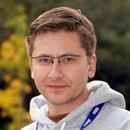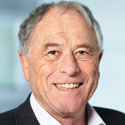Advisory Board and Editors Biophysics

Jingbo Wang
Prof Wang's research spans several disciplines including quantum dynamics theory, quantum computation and information, atomic physics, and computational science. She has published extensively, including a recent book published by Springer, four book chapters, and numerous journal papers. Prof Wang currently leads the quantum dynamics and computation group at The University of Western Australia. She and her research team have developed advanced numerical techniques to solve problems in both quantum and classical domain.

Xiaohui Wang
Principal Investigator of Chemical Biology Laboratory, Changchun Institute of Applied Chemistry, Chinese Academy of Sciences
Council Member of Asian Pacific Society for Neurochemistry
Recipient of CAS Pioneer Hundred Talents Program
Recipient of the Migraine Research Foundation Award
Member of the Chinese Pharmaceutical Association (CPA)
Recipient of the Sanofi Award for Young Scientists in Bio-medicine
Recipient of the ISN -CAEN Award
Recipient of the APSN Young Investigator Award
Recipeint of the ISN-ESN Young Investigator Award
Principal Investigator (Professor) Xiaohui Wang received his B.Eng. degree (Bioengineering) in 2004 from Beijing Technology and Business University. He got his PhD degree in Chemical Biology in 2010 from Changchun Institute of Applied Chemistry, Chinese Academy of Sciences (CAS) under the supervision of Prof. Xiaogang Qu. He was co-mentored by Associate Prof. Hang (Hubert) Yin (Department of Chemistry and Biochemistry and the BioFrontiers Institute) and Distinguished Prof. Linda R. Watkins (Department of Psychology and Neuroscience and the Center for Neuroscience) at the University of Colorado at Boulder during his Post-Doc training. Since 2015, he starts his independent academic career.

Ingrid M Weiss
Professor for Biobased Materials at IBBS - Institute of Biomaterials and Biomolecular Systems, University of Stuttgart, Germany.
Past Head of Biomineralization at INM – Leibniz Institute for New Materials, Saarbrücken, Germany and Private Lecturer "Biochemistry" at the University of Regensburg, Germany.

Benjamin J. Whalley
Senior Lecturer in Pharmacology, University of Reading. British Neuroscience Association Local Group Representative. British Pharmacological Society (Member). UK Epilepsy Research Network (Interventions & Therapies CWG). Pharmacist (GPhC registered).
Investigating unmet clinical need in epilepsy with a specific focus on cannabinoid pharmacology using preclinical animal models and electrophysiological techniques supported by convention molecular and biochemical approaches.

Claus O Wilke
Professor and Department Chair, Department of Integrative Biology, The University of Texas at Austin. Received his PhD in Theoretical Physics from the University of Bochum, Germany, in 1999. Postdoc at Caltech, 2000-2005.

Kurt Wüthrich
The Cecil H. and Ida M. Green Professor of Structural Biology at The Scripps Research Institute, La Jolla, and a Professor of Biophysics at the ETH Zürich, Zürich, Switzerland. His specialty is nuclear magnetic resonance (NMR) spectroscopy with biological macromolecules. His achievements have been recognized by the Prix Louis Jeantet de Médecine, the Kyoto Prize in Advanced Technology, the Nobel Prize in Chemistry, and by a number of other awards and honorary degrees.

Lai-Hua Xie
Associate Professor at Rutgers-New Jersey Medical School, Editor of American Journal of Medical and Biological Research, Dataset Papers in Biology, Frontiers in Physiology, Journal of Cardiovascular Disease Research, PLOS One, World Journal Of Hypertension, and World Journal of Cardiology.

Norifumi Yamamoto
Norifumi Yamamoto received his PhD from Kyushu University in 2004. He was a Postdoctoral Fellow of the Japan Society for the Promotion of Science (JSPS) at the University of Tokyo from 2004 to 2007. He was an Assistant Professor at Gifu University from 2007 to 2010, and at Nagoya University from 2010 to 2012. He moved to Chiba Institute of Technology in 2012, where he is currently a Professor of computational chemistry.

Massimiliano Zanin
Principal Researcher at Instituto de Física Interdisciplinar y Sistemas Complejos (IFISC), Palma de Mallorca, Spain.
My interest is mainly focus on the application of modelling tools (and especially complex networks theory and data mining) to a wide range of problems, from the air transport to the interactions within cells.

Xiaodong Zhang
Xiaodong Zhang graduated from Peking University in 1988, majoring in Nuclear Physics. She then went to Stony Brook University to pursue her PhD in Physics in the group of Professor Janos Kirz . After her PhD in 1995, she went to Harvard University for her postdoctoral training in X-ray crystallography under the guidance of Professor Don Wiley. She took up a lecturership at Imperial College London in 2001. She was promoted to Professor of Macromolecular Structure and Function in 2008. Her current research focuses on elucidating the structures and molecular mechanisms of macromolecular machines, especially those involved in DNA processing including the transcription apparatus and its regulators, components in DNA damage signaling and repair.

Yuliang Zhang
Dr. Zhang is a Staff Scientist from Lawrence Livermore National Laboratory. He holds a PhD in Pharmaceutical Sciences. His research mainly focuses on bio-molceular interaction by using microscopy and Molecular Dynamic simulations. He served as PI and Co-I in two projects.


